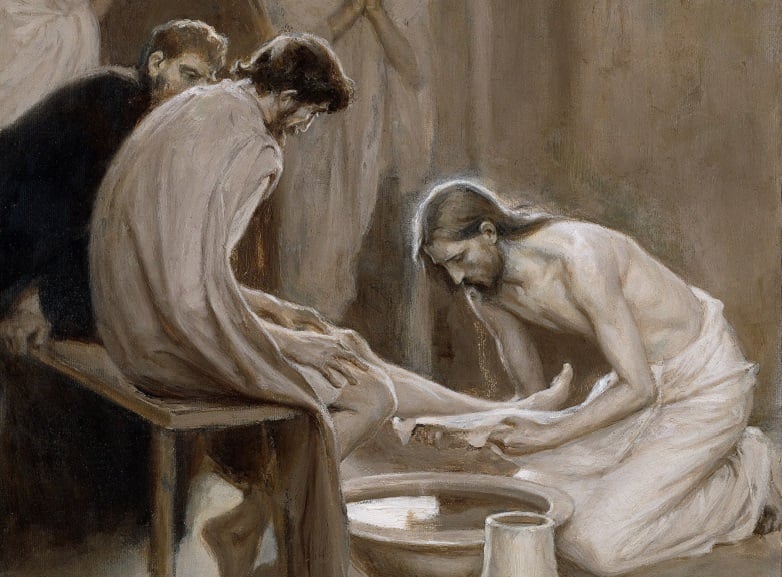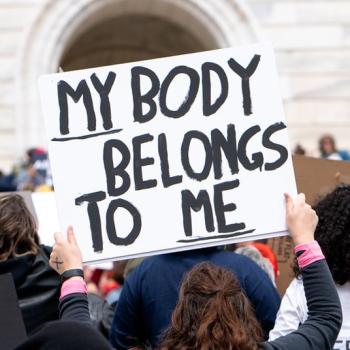Sure, your church has worship services. But does it have service-worship? Here’s how your congregation can celebrate AND serve on Sundays.

In “Why is a church service called a ‘service,’” Anthony Smith says that many believe it’s because we serve God through our time, treasures, and talents. However, he points out that…
The shocking answer is that, when the church gathers for worship, it is not a time when we serve God by giving things to him, but a time when God serves us!
Jesus himself said that he “came not to be served but to serve and to give his life as a ransom for many” (Matthew 20:28; Mark 10:45, ESV). Jesus didn’t come to take from us—even “the best that we can bring”—but to give to us. He did that because God isn’t the self-centred greedy God, but the generous, self-giving Trinity: Father, Son and Spirit, bound together in self-giving, overflowing love…
I agree with Smith’s point that the Sunday gathering is an expression of God’s spiritual service to us. And there are ways that the Church can participate in this divine service by serving one another, and our communities. Here’s how your congregation can both celebrate and serve on Sundays.
Not Worship-Centric
The church I attend has worship services on the first and third Sundays of each month. We could have worship services every week if we wanted to, but we intentionally decided not to be a community that is Sunday-centric. Instead of focusing on Sundays, our church encourages everyday Christianity, with fellowship at our midweek dinner parties. That’s where we really develop a sense of community with each other. If someone involves themselves in all that our church has to offer, they go to a dinner party weekly but only go to a worship service twice a month. In this way, our church is not worship-centric.
Koinonia Meals
On the second Sunday morning of each month, we share a potluck brunch. Instead of singing and sermons, we serve one another through the sharing of food and table. This is reminiscent of the Koinonia meals of the early church before the Eucharist developed into a ritual. Serving one another in the context of the table is exactly what Jesus modeled when he told the disciples to love one another.
A Time to Serve
What does our church do on the fourth (and sometimes fifth) Sundays of the month? We encourage our members to go out and serve in the community. They might do this on a Sunday morning, picking up garbage on the side of the road. Or they might join one of the teams that serve a monthly meal at our local homeless shelter on Tuesday evenings. Opportunities for service are only limited by imagination. Taking Sunday morning off compensates for the time that people spend serving during the week.
Why compensate for that time? Because time is a tough thing to come by for many people. For example, I have a long work commute, so it’s a real sacrifice to serve on Tuesday evenings. Taking a Sunday morning to go paddleboarding is a great relief to me! Our church recognizes that being a Christian isn’t all (or even mostly) about worship and that service should play a vital role in what we do as believers. By taking a Sunday morning off, we give our folks time to either serve on a Sunday or at some other time in the month. To those who protest, saying, “But you’re missing worship,” I would remind them that service is a type of worship.
Ideas for Service
Here are a few other ideas of how you might be of service in your community:
- Volunteer at your local clothing closet.
- Become a mentor through an organization like Big Brothers Big Sisters.
- Help with a local food pantry distribution.
- Get involved with an organization that helps people re-integrate from incarceration, back into society.
- Adopt a highway in your neighborhood and do your part for the environment.
- Collect recycling and donate that money to your church’s benevolent fund.
- Assist at your local library.
- Volunteer at your local animal shelter.
- Offer to do social media for a local nonprofit.
- Click here for more ideas from Dosomething.org
These are just a few examples of ways you can be of service to your community. The church isn’t all about worship services. It ought to also be about service-worship.
The Heart of Namaste
We engage in service worship when our volunteerism takes on the heart of namaste. Many Westerners associate this Sanskrit word with yoga classes. Some understand it to mean, “The divine in me honors the divine in you.” It recognizes that each of us is a vessel of God in this world. Jewish theologian Martin Buber offers a similar concept in his book, “I and Thou.” True service means treating other people as, well, people. It means putting the person first. So, instead of serving “the homeless,” you’re serving “people experiencing homelessness.” Instead of serving “addicts,” you’re serving “people with addiction.” Putting others first honors the divine presence in all of us. (Click here to read more on person-first and destigmatizing language.)
Serving “The Least of These”
Christianity has this same concept, with or without the word namaste. Jesus said, “Truly I tell you, just as you did it to one of the least of these brothers and sisters of mine, you did it to me… just as you did not do it to one of the least of these, you did not do it to me (Matthew 25:40,45). When we serve others, we serve Jesus. When we ignore others, we ignore Jesus. This is because the divine exists in every human being.
Our service is worship when we recognize the presence of God and those whom we serve. Jesus also said, “Where two or three are gathered in my name, I am there among them (Matthew 18:20).” In this, Jesus pointed out God’s presence in each person. So, whether we gather in the church building for worship services or get together with friends for service-worship, we do so in the name of Jesus and the spirit of namaste.
Integrating Worship Services with Service-Worship
Churches should emphasize service-worship as much as worship services. Service should not be an afterthought. How can we do this? Perhaps on a regular basis, whenever it suits the congregation but not so infrequently that it gets forgotten, the church could offer service-worship on Sunday morning. Instead of simply encouraging people to “get out there and serve,” the church could gather for works of service during the regular Sunday timeslot. That way, not only do you get maximum participation, but you also teach the concept that service is worship. You’re not serving instead of worship. You’re serving as worship.
Another way to have service-worship is to use the Sunday morning gathering to highlight the service that members perform during the week. Instead of a sermon, members are invited to share stories from their individual times of neighborhood service. This is not an occasion to humblebrag about how generous people are with their time and talents. Instead, it’s an opportunity to “provoke one another to love and good deeds (Hebrews 10:24).” By sharing the things that we are doing, we give other people ideas for things they might try. We inspire members of the body who may not be volunteering anywhere. And we highlight the joys of service by celebrating accomplishments. When a church regularly turns worship service into service-worship, it prioritizes the servanthood that it encourages in its members.
Worship Services, Or Service-Worship?
Worship services are great! I love attending Sunday gatherings and playing percussion on our worship team when I can. I’m not knocking worship services. But maybe we could give service-worship a try. By doing so, we highlight that Christianity isn’t all about singing songs and listening to sermons. It’s about being the presence of Christ in our community.


















